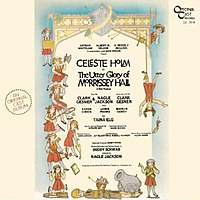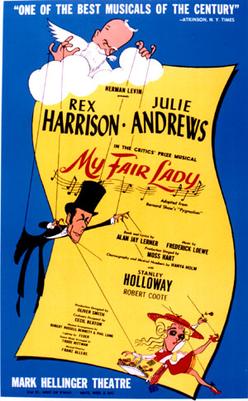
My Fair Lady is a musical with a book and lyrics by Alan Jay Lerner and music by Frederick Loewe. The story, based on the 1938 film adaptation of George Bernard Shaw's 1913 play Pygmalion, concerns Eliza Doolittle, a Cockney flower girl who takes speech lessons from professor Henry Higgins, a phonetician, so that she may pass as a lady. Despite his cynical nature and difficulty understanding women, Higgins grows attached to her.
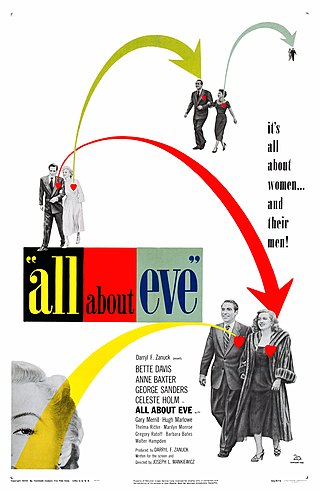
All About Eve is a 1950 American drama film written and directed by Joseph L. Mankiewicz, and produced by Darryl F. Zanuck. It is based on the 1946 short story "The Wisdom of Eve" by Mary Orr, although Orr does not receive a screen credit.
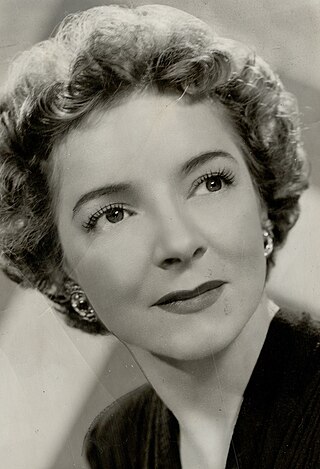
Helen Hayes MacArthur was an American actress whose career spanned 82 years. She eventually received the nickname "First Lady of American Theatre" and was the second person and first woman to have won an Emmy, a Grammy, an Oscar, and a Tony Award. She was also the first person to win the Triple Crown of Acting. Hayes also received the Presidential Medal of Freedom, America's highest civilian honor, from President Ronald Reagan in 1986. In 1988, she was awarded the National Medal of Arts.
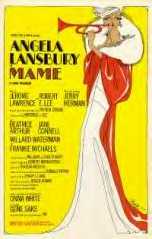
Mame is a musical with a book by Jerome Lawrence and Robert Edwin Lee and music and lyrics by Jerry Herman. Originally titled My Best Girl, it is based on the 1955 novel Auntie Mame by Patrick Dennis and the 1956 Broadway play of the same name by Lawrence and Lee. A period piece set in New York City and spanning the Great Depression and World War II, it focuses on eccentric bohemian Mame Dennis, whose famous motto is "Life is a banquet and most poor sons of bitches are starving to death." Her fabulous life with her wealthy friends is interrupted when the young son of her late brother arrives to live with her. They cope with the Depression in a series of adventures.
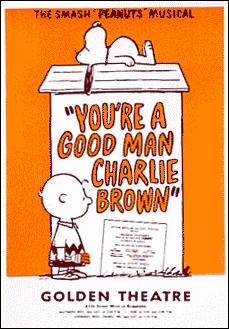
You're a Good Man, Charlie Brown is a 1967 musical with music and lyrics by Clark Gesner and Andrew Lippa. It is based on the characters created by cartoonist Charles M. Schulz in his comic strip Peanuts. The musical has been a popular choice for amateur theatre productions because of its small cast and simple staging.
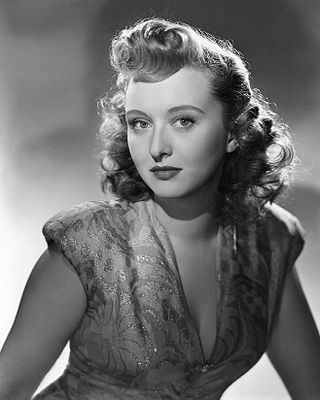
Celeste Holm was an American stage, film and television actress.
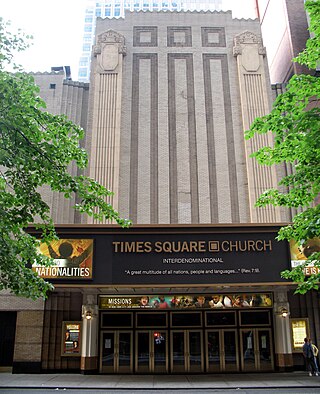
The Mark Hellinger Theatre is a church building at 237 West 51st Street in the Midtown Manhattan neighborhood of New York City, which formerly operated as a cinema and Broadway theater. Opened in 1930, the Hellinger Theatre is named after journalist Mark Hellinger and was developed by Warner Bros. as a movie palace. It was designed by Thomas W. Lamb with a modern facade and a Baroque interior. It has 1,605 seats across two levels and has been a house of worship for the Times Square Church since 1989. Both the exterior and interior of the theater are New York City landmarks.

Nottingham Girls' High School is a private day school for girls aged 3–19, situated just north of Nottingham city centre. The school was founded in 1875 and forms part of the Girls' Day School Trust.
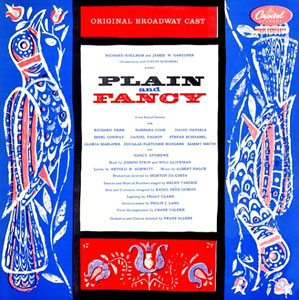
Plain and Fancy is a musical comedy with a book by Joseph Stein and Will Glickman, lyrics by Arnold Horwitt, and music by Albert Hague. One of the first depictions of an Amish community in American pop culture, it includes a traditional barn raising and an old-fashioned country wedding. The musical ran on Broadway in 1955–56, and has been produced yearly at the Round Barn Theatre in Nappanee, Indiana since 1986.
The Sarah Siddons Award, established in 1952, is presented annually to an actor or actress for an outstanding performance in a Chicago theatrical production. The winner receives a statuette of the Welsh stage actress Sarah Siddons.

Betsy Joslyn is a Broadway musical and dramatic actress and soprano. Joslyn is best known for her Broadway work, including the original 1979 production of Sweeney Todd. She appeared in the ensemble of the original Broadway production and eventually took over the ingenue role of Johanna after Sarah Rice. She is married to conductor Mark Mitchell.
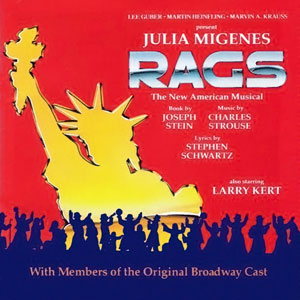
Rags is a musical with a book by Joseph Stein, lyrics by Stephen Schwartz, and music by Charles Strouse.
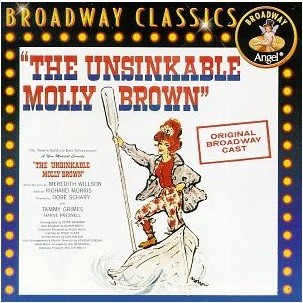
The Unsinkable Molly Brown is a 1960 musical with music and lyrics by Meredith Willson and book by Richard Morris. The plot is a fictionalized account of the life of Margaret Brown, who survived the sinking of the RMS Titanic, and her wealthy miner-husband. A musical film version, also titled The Unsinkable Molly Brown, with screenplay by Helen Deutsch, was released in 1964.
The 27th Annual Tony Awards ceremony was held on March 25, 1973, at the Imperial Theatre in New York City, and broadcast by ABC television. Hosts were Rex Harrison, Celeste Holm and co-hosts were Sandy Duncan and Jerry Orbach.
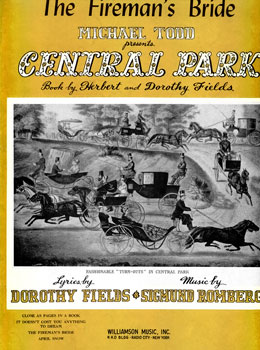
Up in Central Park is a Broadway musical with a book by Herbert Fields and Dorothy Fields, lyrics by Dorothy Fields, and music by Sigmund Romberg. The musical, originally called "Central Park" before Broadway, was Romberg's last stage work produced during his lifetime.
The 35th Annual Tony Awards was broadcast by CBS television on June 7, 1981, from the Mark Hellinger Theatre. The hosts were Ellen Burstyn and Richard Chamberlain. The theme was "Women's Achievements in the Theatre."
The Theatre Museum (TTM) is located at 30 Worth Street in Manhattan, New York City. Its mission is to preserve, protect and perpetuate the legacy of theatre, including Broadway theatre. The Theatre Museum continues the legacy of The Broadway Theatre Institute begun in 1995 by presenting Awards for Excellence in Theatre History Preservation and Theatre Arts Education. It currently functions as a museum-at-large and is not open to the public.

George Michael Cohan was an American entertainer, playwright, composer, lyricist, actor, singer, dancer and theatrical producer.

Anne Sargent was a film and stage actress from West Pittston, Pennsylvania, who performed in theater under the direction of Alfred Lunt, in 1948–1950. She is perhaps best known for her role as Mrs. Halloran in the 1948 motion picture The Naked City.

Clark Gesner was an American composer, songwriter, author, and actor. He is best known for composing the musical You're a Good Man, Charlie Brown, based on the Charles M. Schulz comic strip Peanuts.
